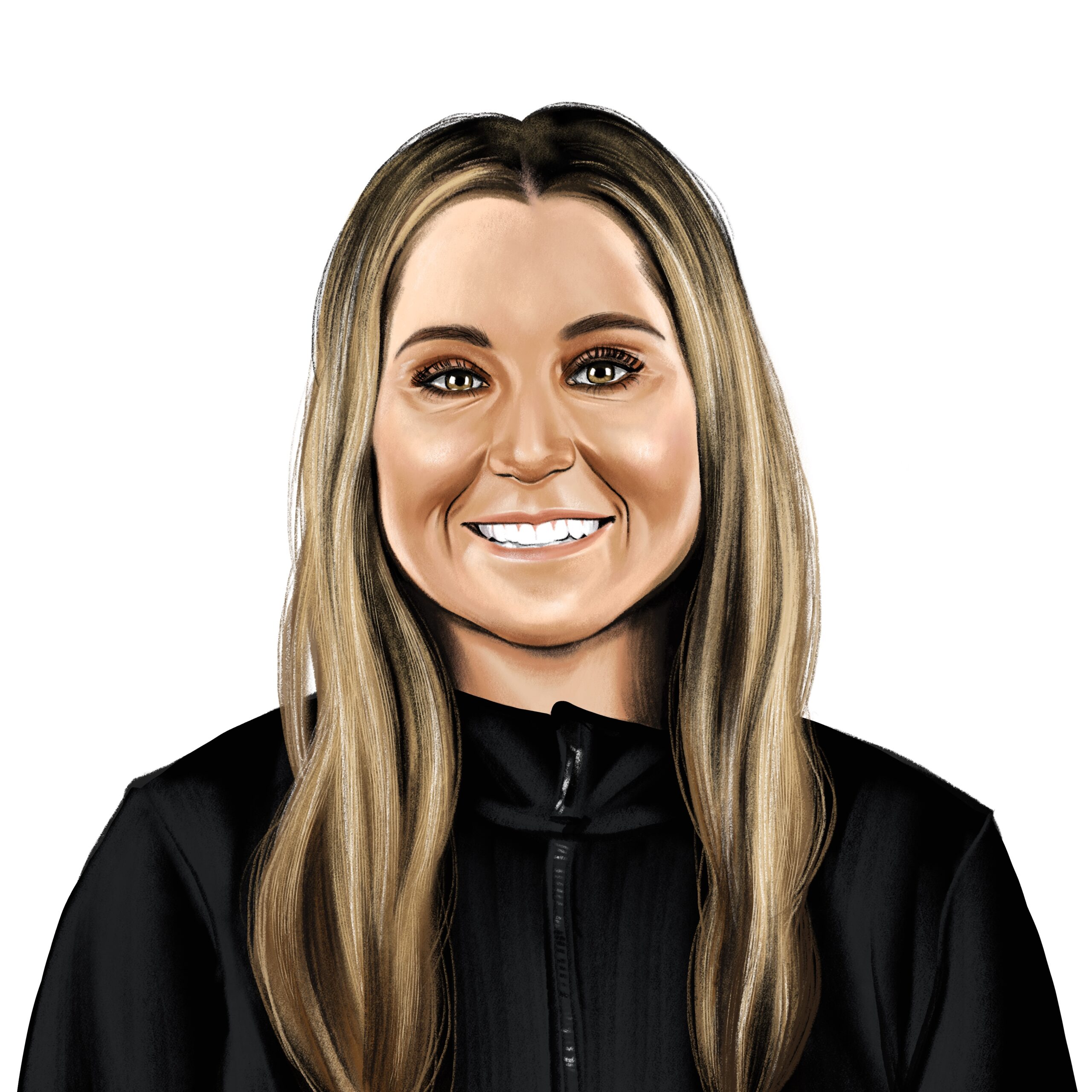03.26.2025
By uscbknpt
Friends in High Places:
Cassidy Papa DPT ’21

Cassidy Papa DPT ’21
Charlotte Hornets Physical Therapist
IT WASN’T ALL THAT LONG AGO that Cassidy Papa was sitting in the classrooms within the Center for Health Professions, learning the fundamentals of physical therapy as part of her DPT degree studies. Today, the USC alumna, who went on to pursue a Division I Sports Fellowship from Wake Forest University in Winston-Salem, N.C., is blazing a trail as a member of the medical performance team for the Charlotte Hornets — a space historically occupied by men, though that’s quickly changing. We caught up with Papa to learn a little more about the dream career she has managed to forge for herself.
How did your career with the Charlotte Hornets get started?
The opportunity presented itself thanks to a mutual colleague of someone on staff with the Hornets.
What is a typical day like for you?
The nature of an NBA season means that each day, week and month are different because we play 82 games (we travel for 41 of those). In general, the day consists of a medical performance staff meeting, group rehab meetings for long-term rehabs, treatment time with the players, rehab time with players (as needed) and practice coverage. Game days could include a morning shoot-around and game coverage but meetings, treatments and rehabs would still be included.
What is the most fulfilling aspect of the job?
Rehab is my passion, so the fact that I get to do that every day surrounded by people who are looking to grow together for our athletes is extremely fulfilling. Basketball is the life, career, passion, etc. of the athletes, and having a role that allows them to continue to perform at the highest level possible is another thing I love about my job.
How would you say your DPT studies at USC prepared you for an eventual career in sports rehabilitation?
My DPT studies at USC prepared me by teaching me the foundations of physical therapy to work from when treating elite athletes. In addition to the physical skills, I learned skills like developing relationships with my athletes and my colleagues, thinking critically, valuing and appreciating research and being flexible and adaptable — all of which have set me up for success and will continue to do so moving forward in my career.
What is the best advice you could give a current or prospective student looking to emulate your career path?
My best advice would be to embrace the foundations you learn in PT school. These are fundamental in progressing as a rehab specialist, regardless of the setting you end up in. It’s important to seek opportunities that expose you to sport environments — or whatever environment you are looking to get into — but it can’t be at the expense of skipping over the basic skills you develop and relationships you create in PT school.
What does it mean to you to be blazing a trail for future women in sports?
It means a lot to me to be considered a trailblazer for women in sport, but I also feel extremely grateful that I am part of an organization where I am surrounded by other women and men that are all advocating for each other and inspiring each other to move our medical-performance space forward. I hope that my team and I and other organizations like ours can continue to make it normal to develop medical performance teams where each member is hired based on their potential role in the overall success of the team regardless of gender.

